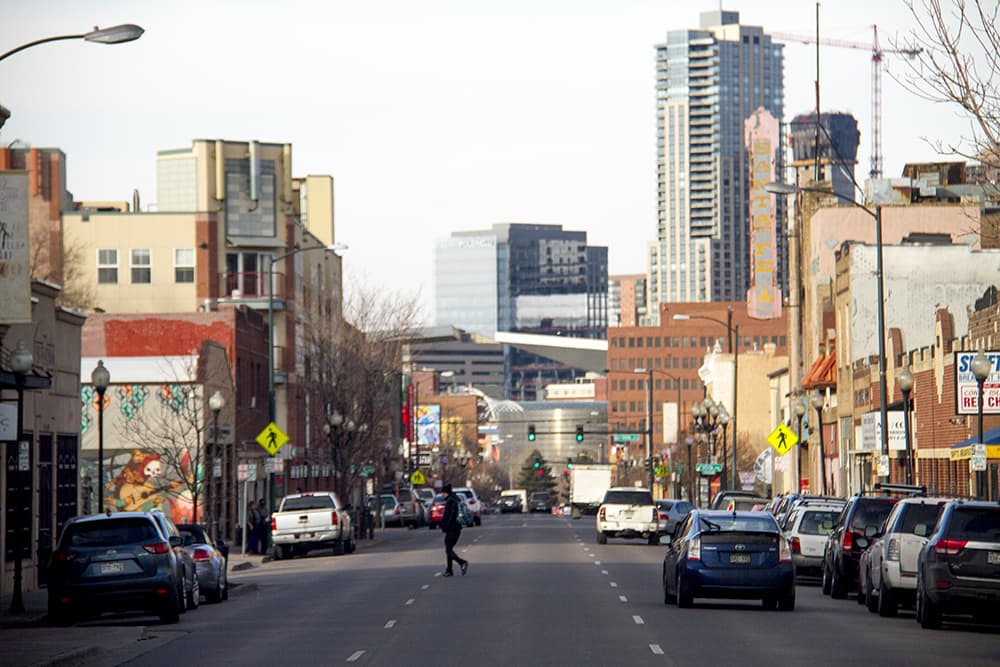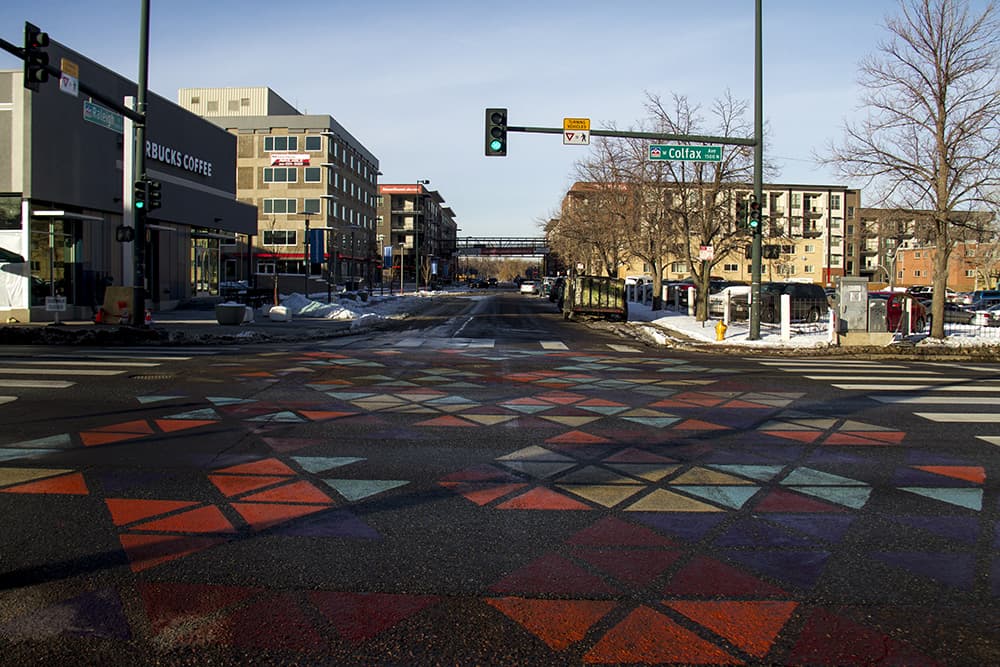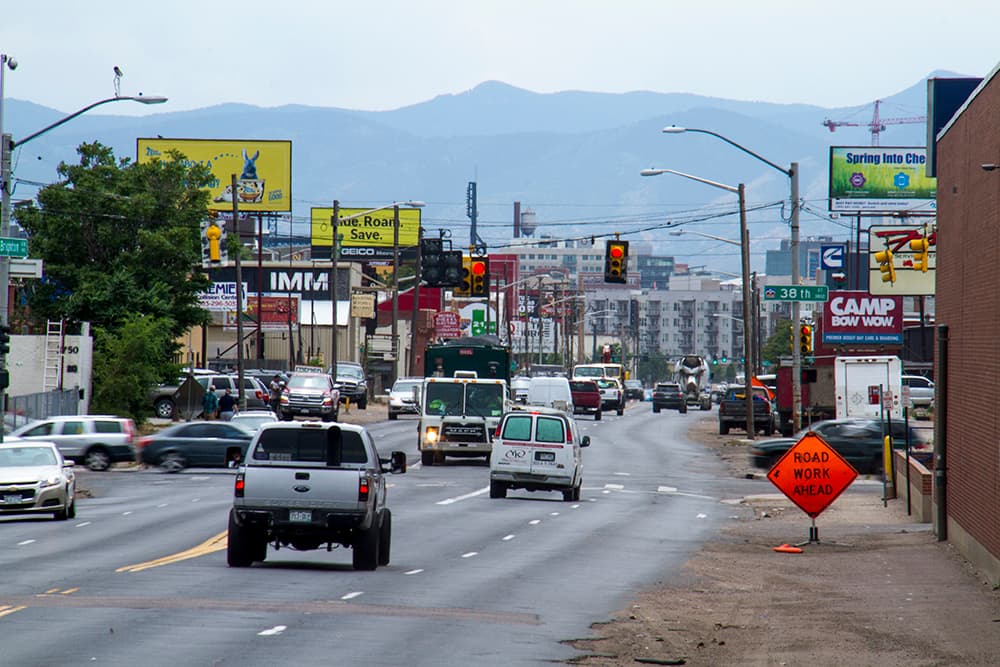
Denver's still months away from allowing people to use marijuana in private businesses, but the executive director of the Colfax Mayfair Business District is already hearing from business owners who want her support.
"We’ve had a couple of inquiries," Hilarie Portell said. "One was a yoga studio, and one was an existing dispensary."
"At the moment, we’re not entertaining any discussion with our board until the city finishes creating its rules and procedures."
The Colfax Mayfair Business District and other registered neighborhood groups could play a key role in deciding whether businesses in their areas get social cannabis consumption permits created by Initiative 300. But some organizations aren't looking forward to the responsibility.
"We don’t dictate operations for other types of businesses," Portell said. "We don’t tell restaurants when patrons can or cannot have a glass of wine, and to be honest with you, I think some legal research needs to be done as to whether BIDs can even serve in this role."
Local government attorney Norman "Rick" Kron is organizing a group discussion in February to answer legal questions from neighborhood groups, but Kron said he's not prepared to talk about those issues just yet.

Denver voters signaled in November they want to try letting people use cannabis in businesses by passing Initiative 300. In theory, the initiative allows just about any kind of business that doesn’t sell marijuana to get a cannabis consumption permit under the Neighborhood-Supported Cannabis Consumption Pilot Program.
(So that Colfax Mayfair dispensary owner would need some other business as a partner.)
The city started putting out permit application forms Jan. 21 and hopes to finalize all the rules and start issuing permits during the summer. The exact role neighborhood organizations will play in it all still needs to be figured out.
The Initiative 300 ballot language calls for businesses and event spaces to be permitted if "they obtain the support of an eligible neighborhood association." Those neighborhood groups could be registered neighborhood organizations, or RNOs, business improvement districts, or BIDs, or other associations of property owners as defined by the city. These groups could impose requirements or restrictions on businesses including limiting hours of operation and forcing businesses to provide pre-paid public transportation, taxi or ride-sharing services for any person consuming cannabis.
An "undue burden"
"There need to be more guidelines put in place before dumping that undue burden on RNOs," said Aubrey Lavizzo.
Lavizzo is involved with a number of neighborhood groups including the La Alma-Lincoln Park Neighborhood Association and the Upper Santa Fe Neighbors RNO. The veterinarian is also one of the 22 people picked to help come up with rules and regulations related to Initiative 300.
The Social Consumption Advisory Committee met for the first time Jan. 18. The group's next expected to get together Feb. 8.
The committee will have to tackle a number of concerns, including what happens if a business lies within multiple neighborhood groups or business districts and they disagree on permitting, if a board member of one of these groups wants to apply for a permit or if no neighborhood group wants to weigh in.
"Not all RNOs are created equally or maintained equally. There’s a huge difference in some of the leadership," Lavizzo said. "In Lincoln Park, we have strong leadership, we have a strong board and everyone is involved. Not all RNOs are set up that way."

An "opportunity"
The head of the West Colfax Avenue Business Improvement District, Dan Shah, said he still needs to talk to his board, but he sees Initiative 300 as an opportunity.
"The thing I like about this law is it’s being done in a way that acknowledges the community and recognizes Good Neighbor Agreements," Shah said. "Honestly, I think it essentially amounts to something we deal with all the time, which is liquor licenses."
Neighborhoods can negotiate binding “Good Neighbor Agreements” with businesses looking to get liquor licenses in their areas. The agreements spell out how a business will work with the surrounding community to address potential problems like outdoor patios, noise and late hours.
RNOs are required to be notified of new liquor license hearings, but they don't have to weigh in at public hearings or at all. They're also not forced to enter any agreements with businesses looking to serve beer, wine and liquor. Initiative 300 might require RNOs to provide at least a letter or document of "non-opposition."
"We’ve been pretty open about wanting to consider businesses in or near our BID for social consumption areas," said Leslie Twarogowski, executive director of the Federal Business Improvement District. "If we can create opportunities for people other than getting stoned in their car or in the park, we definitely want to do that."
Twarogowski said her group is active enough to take on a role in social consumption applications, but it won't put the desires of businesses over those of neighbors.
"We as a BID believe our main function is to make our neighbors happy and hopefully make our neighbors customers of our businesses," she said. "I don’t want to be in a situation that our neighbors don’t like."

The president of RiNo Art District, Jamie Licko, said her group will reach out to the neighborhood before making any policy on social consumption areas.
"Personally, I've been contacted by a lot of folks that seem to be more interested in doing events under this new policy as opposed to stand-alone businesses, if you will," Licko said. "We are asking questions about whether there is an opportunity, if these businesses or events are going to come in, to set some additional requirements that would require them to give back."
Licko said she's not sure what that would look like, but it could be fees that would go toward supporting the district.
Business & data reporter Adrian D. Garcia can be reached via email at [email protected] or twitter.com/adriandgarcia.












